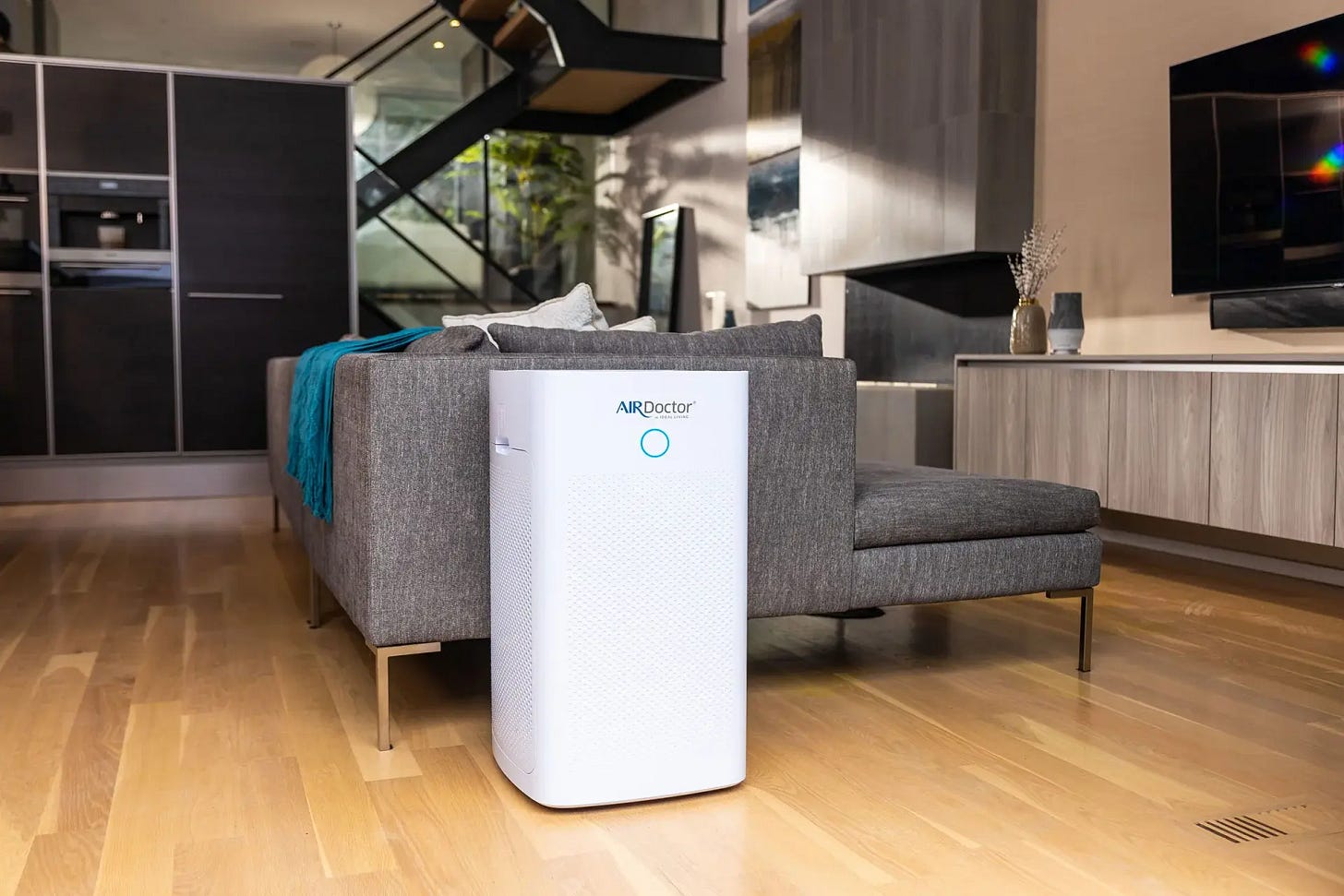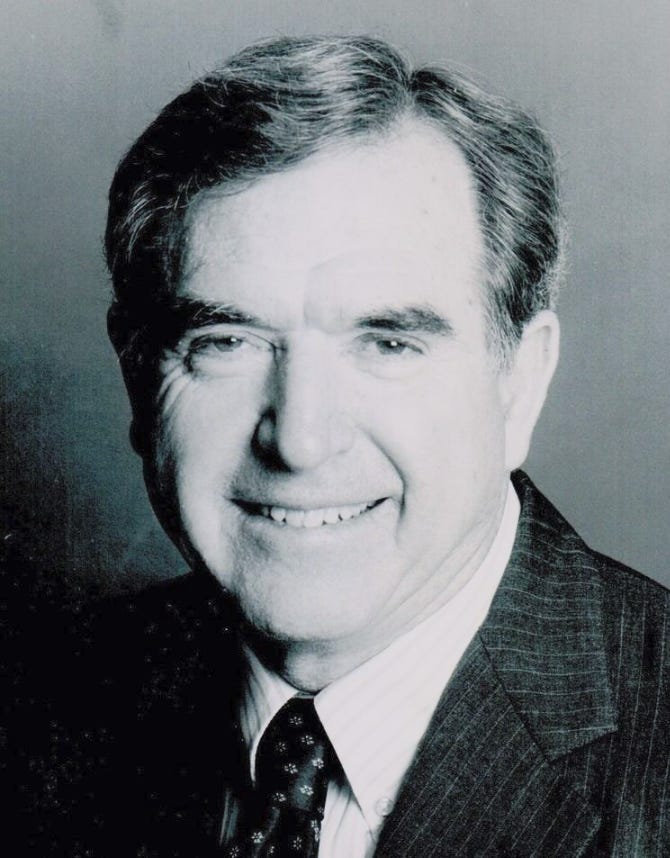Can you change your genes?
😮 Study finds that in as little as 28 days, our genetic expression can be changed....
“It’s just one of those things. It happens.. maybe genetic?” I winced as I sat across from my daughter’s allergist. This was his answer when I asked him how my daughter could have this life-threatening milk allergy when neither my husband or I had food allergies. This was before I knew any better.
Genes certainly play a role in our health, but it has been given more importance than it deserves.
If you’ve ever been told your health condition is due to ‘bad luck’ or ‘bad genes - I have good news for you.
Technically, we cannot change the genes we inherited from our parents. BUT we CAN change the expression of some of these genes… this is what is also known as ‘epigenetics’.
Simply put, our lifestyle, diet, and environment can switch ON and OFF certain genes, thereby altering how they translate into physical, observable effects, and therefore our health destiny.
For example, in studying obesogens (chemicals that increase our propensity towards weight gain), Professor Blumberg looked at a chemical called Tribultytin1 - used to coat the outside of ships. He found that the offspring of pregnant rats exposed to this chemical during their pregnancy were more likely to be overweight. Not only that, but the offspring’s offspring also had a propensity towards weight gain i.e. the effect was passed down 2 generations.
We since have human studies that suggest exposure to environmental pollutants during pregnancy can affect the health outcomes of the offspring e.g. exposure to BPA during pregnancy has been associated with lower IQ in male offspring2
Men who were prenatally exposed during early gestation to the Dutch famine of 1944-1945 were 30 percent more likely to be overweight compared to a similar group not exposed to the famine - it is thought that famine exposure led to changes in DNA methylation that encouraged the body to hold onto fat (a survival mechanism), to prepare them to thrive on fewer calories. Research on the DNA of children exposed to the famine has also shown that the expression of genes that regulate metabolism were also altered, which may increase their risk of metabolic disease later in life.
You can also silence genetic expressions…
By the same token, the removal of harmful chemicals from our environment can have a positive effect on our genetic expression.
A study published last year looked at healthy volunteers who stopped using personal care products containing phthalates and parabens over 28 days.
What they found was shocking.3
First, they looked at cells from the breast tissue of healthy volunteers extracted via a needle. They then asked these volunteers to stop using products containing phthalates and parabens. 28 days later, they looked at cells from the breast tissues of the same volunteers again. This is what they concluded:
“We demonstrate a striking reversal of cancer-associated phenotypes, including the PI3K-AKT/mTOR pathway, autophagy, and apoptotic signaling networks.” - in plain English, what this means is that cellular pathways associated with cancer development were quietened down and reversed 🙌.
Translation: some of the genes associated with breast cancer development were silenced.
They also found that the urinary metabolites of phthalates and BPA were significantly reduced in individuals who avoided personal care products containing phthalates and BPA - meaning, what you do on a day-to-day basis makes a difference.
This supports what I always say:
Little changes can lead to transformative results over time. Toxin reduction, even if you can only change one product at a time, makes a difference.
Do genes matter? Yes, of course. For example, we know from preliminary studies that siblings born after centenarians (those who live over 100 years of age) are four times more likely to become centenarians themselves, compared to their birth cohorts.4 So genes definitely play a role. However, the impact is not as large as we may think.
In an interesting study, Dr. Herskind followed 2872 identical twins born between 1870 and 1900. Since identical twins share the same DNA sequence, the study aimed to understand how genes and the environment affect how long we live. It was estimated that genes ONLY contribute to around 26% of longevity for men and 23% for women.5 What is more, the paper also concluded that future research should look into the interaction between genes and environment to explain human longevity.
Similarly, studies have now shown that only 10-30% of cancers can be attributed to genes – which leaves the other 70-90% being caused by lifestyle, dietary and environmental factors.6
Think of a piano. All the keys are there. Yet everyone who sits down at the same piano will produce very different-sounding music.
Our genes are the keys on that piano. These are fixed.
How we play that piano - that’s our environment, lifestyle, and diet. These are the things that can make the same piano sound very differently.
You may have heard the phrase, food is information. What that means is, every bite of food you eat sends molecular information to your genes and affect whether certain genes are activated or silenced.
In addition, your environment is also information, perhaps increasingly more important given that there are 80,000+ chemicals in our environment, and only a small percentage have been shown to be safe in humans before they are used.
Studies are stacking up on the impact of our environment not only on our health but on our children. For example, children born to women exposed to air pollution while pregnant are more likely to be obese.7 Whilst we can’t control our outdoor air, there is a LOT that we can do about our indoor air.
The toxins we breathe in, the stress we endure, the sleep deprivation, ALL interact with our genes, all the time. Our bodies are doing their best to keep us safe given the circumstances we throw at them.
I’m not saying all diseases can be reversed or prevented via diet, environment, and lifestyle. Not at all. Medications are important and needed too, and there should be no shame in needing to take medications - that’s what they are there for.
I’m also not saying that, if you got a diagnosis, that it is your fault. Life throws curveballs, and even the ‘healthiest’ person can receive life-threatening diagnoses.
What I focus on are steps that can IMPROVE our odds of staying healthy.
You are probably asking, well if this is true, and data is dating back from 1998, how come doctors don’t talk about it more?
It’s simple. Doctors want to do the best for their patients. However, we were not taught any of this at medical school.
The medical curriculum (which I learned) focuses on ‘fixing’ people when they become sick. Most of the ‘fixing’ utilizes bandaids rather than real root cause correction. This is a shame. With astronomical healthcare costs from chronic diseases crippling the UK National Health Service, and the US spending $4.5 trillion on healthcare (90% of which is on chronic diseases) - if only we could make a paradigm shift towards prevention, we could significantly patch this black hole somewhat, and reduce the healthcare cost burden.
To quote a former Harvard Professor of medicine and Editor-in-Chief for the New England Journal of Medicine, Dr Arnold Seymour Relman.
“The medical profession is being bought by the pharmaceutical industry, not only in terms of the practice of medicine, but also in terms of teaching and research. The academic institutions of this country are allowing themselves to be the paid agents of the pharmaceutical industry. I think it’s disgraceful.”
Conventional medicine absolutely has a place - it can offer life-saving medications and surgery. However, it should not be the ONLY strategy to tackle chronic diseases that have largely lifestyle/diet/environmental root causes.
Key factors that can change our genetic expression (epi-genetics):
Nutrition - the food we eat can upregulate/downregulate genetic expression.
Stress/trauma - this is a big silent killer, in my opinion. One that I address FIRST in my signature course, Detox Right. Most people are not tackling this missing piece, which is blocking them from healing.
Exercise - if we could bottle the benefit of exercise into a pill, we'd be billionaires. Movement is medicine.
Sleep - sleep is when our bodies repair and heal. Most people are not getting enough restorative deep sleep.
Environmental toxins - Sadly, we now have 80,000+ chemicals in use, most of which have no human safety data. The EU is much stricter in allowing chemicals into common daily use items like personal care, and have banned 1300+ chemicals whereas the US has only banned 13. The air we breathe, the water we drink, the food we eat, the products we use in our homes are all sources of toxicants that can damage our DNA, mitochondria, mess with our hormones like insulin and thyroid, affect our fertility - and more. This is a big passion area of mine because not enough doctors are talking about it yet.
If you are here reading this, you are already ahead of the curve.
Whether it's choosing whole, nutrient-dense foods, finding healthy ways to manage stress, incorporating regular physical activity into your routine, prioritizing quality sleep, or minimizing exposure to environmental toxins, every action counts. I have a WHOLE archive of articles to help you with that when you are ready.
Together, let's rewrite the narrative of ‘healthcare’. Let's shift the focus from band-aiding symptoms to promoting true wellness and prevention.
Thank you for being such a part of this movement - I know it’s not easy to hear the inconvenient truth, it takes time, effort, and money to make the changes you are making - but the ripple effects go far wider than you’d ever know. Keep going.
I'm an affiliate for some of the products linked on my website. I get asked about products I use and love all the time, and by being an affiliate, I can negotiate discount codes to share with you, plus earn a small commission if you use my code or link to purchase. This helps me to support my research so that I can continue to provide the content on my platform, thank you so much for your support.
Kirchner S, Kieu T, Chow C, Casey S, Blumberg B. Prenatal exposure to the environmental obesogen tributyltin predisposes multipotent stem cells to become adipocytes. Mol Endocrinol. 2010 Mar;24(3):526-39. doi: 10.1210/me.2009-0261. Epub 2010 Feb 16. PMID: 20160124; PMCID: PMC2840805.
Bornehag CG, Engdahl E, Unenge Hallerbäck M, Wikström S, Lindh C, Rüegg J, Tanner E, Gennings C. Prenatal exposure to bisphenols and cognitive function in children at 7 years of age in the Swedish SELMA study. Environ Int. 2021 May;150:106433. doi: 10.1016/j.envint.2021.106433. Epub 2021 Feb 23. PMID: 33637302.
Dairkee SH, Moore DH, Luciani MG, Anderle N, Gerona R, Ky K, Torres SM, Marshall PV, Goodson Iii WH. Reduction of daily-use parabens and phthalates reverses accumulation of cancer-associated phenotypes within disease-free breast tissue of study subjects. Chemosphere. 2023 May;322:138014. doi: 10.1016/j.chemosphere.2023.138014. Epub 2023 Feb 4. PMID: 36746253.
Skytthe, A., Jeune, B., Vaupel, J. W., & Christensen, K. (2002). Exceptional longevity in humans: The role of familial clustering. Poster at the 2nd Nordic Conference in Epidemiology, 9–12 June 2002. In Aarhus: The Danish Epidemiological Society
Herskind AM, McGue M, Holm NV, Sørensen TI, Harvald B, Vaupel JW. The heritability of human longevity: a population-based study of 2872 Danish twin pairs born 1870-1900. Hum Genet. 1996 Mar;97(3):319-23. doi: 10.1007/BF02185763. PMID: 8786073.
Wu S, Powers S, Zhu W, Hannun YA. Substantial contribution of extrinsic risk factors to cancer development. Nature. 2016 Jan 7;529(7584):43-7. doi: 10.1038/nature16166. Epub 2015 Dec 16. PMID: 26675728; PMCID: PMC4836858.
Margetaki K, Bempi V, Michalaki E, Roumeliotaki T, Iakovides M, Stephanou E, Kogevinas M, Chatzi L, Vafeiadi M. Prenatal air pollution exposure and childhood obesity: Effect modification by maternal fruits and vegetables intake. Int J Hyg Environ Health. 2024 Mar;256:114314. doi: 10.1016/j.ijheh.2023.114314. Epub 2024 Jan 5. PMID: 38183793.









